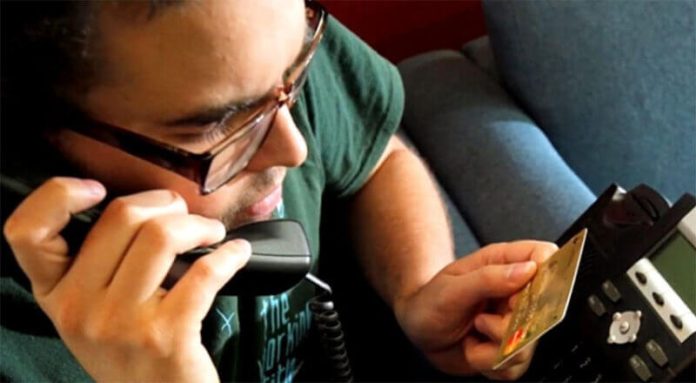I’ve been getting a lot of phone calls lately. Too many, actually.
The calls are from a different out-of-town number each time, and there’s always a beat before the person on the other end starts talking, as if they were being connected.
Each call is the same. They ask for someone that’s not me but who is someone I know.
I say, “No, this is not her number.” They say, “Well, do you know her?”
At first, I said no, because I hadn’t recognized the name — I know her by what is apparently her middle name. At first, I said, “I have no idea who that is. Please take this number off your list and stop calling me,” probably 15 times. That obviously didn’t work.
Once I started recognizing who they were asking for, the conversation continued like this: “Yes, I know her.”
“We are trying to collect a debt from her, and we can’t get in touch with her. We’re calling you because you were listed as a reference.”
This, my friends, is a lie.
First of all, they obviously think my number is her number because they ask for her and not for me. (I lent her a phone that she still uses, and my guess is that my number is still somehow associated with it.)
And besides, if I truly had been listed as a reference, they should know my name, shouldn’t they?
After contacting my friend, she told me that she had canceled her internet contract with that company and had, of course, paid her final bill. They had not been calling her.
With her consent, I gave the callers her number. She’s tried explaining to them, to no avail, that she did indeed pay the balance upon canceling her service. If she hadn’t, after all, she would not have been able to cancel.
But this does not matter. They insist she owes money, and it seems that their mission in life is to collect it. When I’m feeling saucy — and I usually am — I ask them questions.
“What is it exactly that you are wanting from me personally?” They usually don’t answer this question directly but say something like, “It’s just that you’re a reference, and we can’t get hold of her.”
“OK,” I say. “She does not live with me. Again, what do you want from me? Are you expecting me to pay the supposed debt she owes?”
“She put you as a reference.”
At this point, again, I call bullshit. If I were a reference, they’d have my name, and they clearly don’t.
When I ask that question — the one about me paying the debt — they usually get a little snippy. The last lady shouted, “At no point did I say that you were responsible for the debt!” and hung up on me.
I’ve been thinking about things I can do to stop them, or at least get back at them, which I’ll admit is kind of a sport for me. When I was a teenager, my mother was hounded by debt collectors, mean ones, and I now have a personal vendetta against them.
It’s not that I think people shouldn’t pay their debts, but the fact that collectors are often wrong about what is owed — and the fact that there even exists an industry built upon hounding people who are very likely going through real financial crises in their lives — already puts me in a fighting mood.
I mean, there was a summer after my mother had lost her job where for a few weeks we ate one meal a day. The debt collectors obviously did not care. They wanted their money, and failure to provide it to them gave them the right to treat the debtors like scum — irresponsible freeloaders who simply didn’t deserve to sit in peace without the phone ringing 50 times a day (and this was before the time of caller ID – imagine!).
Here in Mexico, they apparently slather on another layer: public humiliation. My friend is obviously mortified that the collectors are calling and harassing me. She’s also not quite sure how they have my number in the first place.
While it could be because she has my old phone, it’s also possible that her boyfriend gave someone my number during the contracting process.
In the end, I don’t care. If someone gave my name and number as a reference, that’s fine. And even if my friend did truly owe money, that would be fine too.
What astounds me is that, especially for such a small amount of money, collection agencies are allowed to harass the references and contacts of the creditor.
When I read the somewhat silly story about all of the dehydrated soups that were being taken off the shelves, I had a “Eureka!” moment.
Profeco! Of course! Surely Mexico’s consumer protection agency could help me.
I quickly looked up its address here in Xalapa, only to find that it was shut down in 2019. Not to be deterred, I found its website, which is about as thorough as most government websites are these days, which is not much.
But I found an email address! A message has been sent, and now I wait. Because this fight … this fight is personal.
In the meantime, I’d love to hear from you all — what experiences have you had with debt collectors in Mexico, justified or not? And if you were able to resolve the issue, how did you make it happen?
If I receive a response or a resolution, I’ll be sure to share it with you in the comments section.
Sarah DeVries is a writer and translator based in Xalapa, Veracruz. She can be reached through her website, sdevrieswritingandtranslating.com and her Patreon page.
